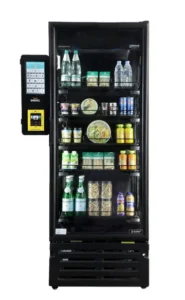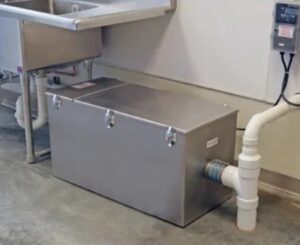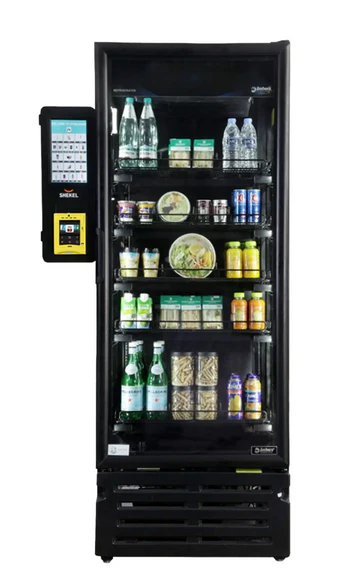When it comes to industrial automation, every detail matters. Whether you’re running a production line, managing energy systems, or overseeing logistics, your technology needs to be reliable, durable, and efficient. That’s where an industrial fanless panel PC comes in. Built for harsh environments, these PCs offer a compact, all-in-one solution for various industrial applications. But what makes them so special, and why should your business invest in one? In this blog, we’ll dive deep into the benefits of using industrial fanless panel PCs, provide practical tips on choosing the right model, and offer actionable advice for maximizing their value in your operation.
What Is an Industrial Fanless Panel PC?
An industrial fanless panel PC is a ruggedized, all-in-one computer that integrates a display and processing unit into a single device. Unlike traditional PCs that use fans for cooling, fanless panel PCs rely on passive cooling systems, which makes them ideal for environments where dust, debris, and other airborne particles could damage sensitive components. These PCs are designed to operate reliably in harsh conditions, such as extreme temperatures, vibrations, or exposure to water.
Commonly used in sectors like manufacturing, energy, transportation, and healthcare, industrial fanless panel PCs are valued for their durability, space-saving design, and energy efficiency. They are perfect for real-time data processing, control systems, and monitoring tasks, ensuring that your business operations run smoothly without costly downtime.
Why Choose an Industrial Fanless Panel PC? Key Benefits
1. No Moving Parts = Enhanced Durability
The absence of fans means there are no moving parts inside an industrial fanless panel PC, which significantly enhances its durability. Traditional PCs with fans are prone to mechanical failure due to dust accumulation, overheating, or wear and tear. Fanless PCs eliminate these risks, making them more reliable for long-term use in tough environments.
For instance, if you’re running a food processing plant, airborne particles like flour dust can easily clog up traditional fan-based systems, leading to frequent maintenance or breakdowns. With a fanless panel PC, you don’t have to worry about debris causing damage or reduced efficiency.
Tip: When choosing an industrial fanless panel PC, opt for models with solid-state drives (SSDs) instead of hard disk drives (HDDs). SSDs are more durable since they have no moving parts, further enhancing the reliability of your system.
2. Compact and Space-Saving Design
In many industrial settings, space is a luxury. Whether you’re working in a control room, factory floor, or vehicle-mounted system, the all-in-one design of an industrial fanless panel PC helps save valuable space. Since the display and computing unit are combined, there’s no need for separate monitors and CPU towers, reducing clutter and freeing up room for other essential equipment.
For example, in a warehouse automation setup, a fanless panel PC can be mounted directly onto a machine or a wall, providing real-time data monitoring without taking up floor space.
Tip: Look for industrial fanless panel PCs with VESA mount compatibility for easy wall or machine installation. This will help you maximize your workspace while maintaining easy access to critical systems.
3. Energy Efficiency for Lower Operational Costs
One of the significant advantages of fanless panel PCs is their energy efficiency. Without a fan to power, these systems consume less electricity, helping you save on energy bills over time. In industries where 24/7 operation is required, such as in surveillance or automated production lines, this reduction in energy consumption can add up to substantial savings.
Consider an example in a power plant where continuous monitoring and control are necessary. A fanless panel PC can run around the clock while using minimal energy, allowing you to reduce your carbon footprint and operational costs simultaneously.
Tip: Choose a fanless panel PC with energy-efficient components like low-power processors (such as Intel Atom or ARM processors). This ensures that your system remains powerful while minimizing energy consumption.
4. Quiet Operation for Noise-Sensitive Environments
Since there are no fans whirring inside, fanless panel PCs operate silently, making them ideal for noise-sensitive environments. In industries like healthcare, where a quiet atmosphere is essential for patient care, fanless systems are perfect for operating rooms, patient monitoring, and diagnostic systems. Similarly, in office environments or control rooms, fanless PCs prevent unnecessary distractions caused by noisy cooling systems.
Tip: If your workspace demands a peaceful environment, ensure your industrial fanless panel PC is fanless and includes SSD storage. These design choices will help maintain a silent, distraction-free atmosphere.
5. Resistance to Harsh Conditions
Industrial environments can be tough on electronic devices. Extreme temperatures, dust, vibrations, and even water exposure are common in many industries, from mining to manufacturing. Industrial fanless panel PCs are designed to withstand these harsh conditions. With IP-rated protection (for dust and water resistance), shockproof casing, and wide operating temperature ranges, these systems can handle extreme environments without skipping a beat.
For instance, a fanless panel PC installed in an outdoor oil rig must endure constant exposure to dust, fluctuating temperatures, and occasional water splashes. Fanless PCs, with their rugged design, can perform in these extreme conditions without the risk of failure.
Tip: When selecting a fanless panel PC, look for models with an IP65 or higher rating if you need protection against dust and water. Additionally, check the operating temperature range to ensure it can function in your specific industrial environment.
6. Low Maintenance for Maximum Uptime
One of the key benefits of fanless panel PCs is their low-maintenance design. Since there are no fans or moving parts, there’s less chance of mechanical failure, which means you won’t need to spend time or money on frequent repairs. This is especially valuable in industries where uptime is crucial, such as manufacturing, where even a short downtime can lead to lost productivity and revenue.
Tip: Regularly check your industrial fanless panel PC’s software updates to ensure peak performance. Even though the hardware requires minimal maintenance, keeping the software up to date will help optimize the system’s efficiency.
How to Choose the Right Industrial Fanless Panel PC
Now that we’ve highlighted the key benefits of using an industrial fanless panel PC, how do you choose the right one for your business? Here are some actionable tips to guide you:
- Understand Your Application Needs: Different industrial applications require varying levels of computing power. For basic monitoring tasks, a low-power processor might suffice, but for more complex data processing or automation control, you’ll need a more powerful system. Make sure you choose a fanless panel PC that meets the specific demands of your application.
- Consider Your Environment: Are you working in an extreme temperature zone, a dusty environment, or near water? Make sure to select a model with the appropriate IP rating and temperature range to withstand your operating conditions.
- Check Connectivity Options: Depending on your setup, you may need multiple connectivity options, such as USB, Ethernet, or serial ports. Ensure the fanless panel PC you choose has enough I/O ports to connect with your other equipment, sensors, or networks.
- Future-Proof Your System: Choose a fanless panel PC with room for expansion. Whether it’s adding more RAM, increasing storage, or upgrading connectivity, having the flexibility to grow with your business ensures that your system won’t become obsolete too soon.
- Evaluate Display Size and Resolution: The size and resolution of the display should match the requirements of your application. For example, if your team needs to monitor complex data, choose a larger, high-resolution screen. On the other hand, if you’re short on space or don’t require high-definition visuals, a smaller, more compact model may be the better choice.
Conclusion
An industrial fanless panel PC offers a powerful, durable, and energy-efficient solution for a wide range of industrial applications. With no moving parts, these systems are built to last, providing reliable operation in the harshest environments. From manufacturing to healthcare, their compact design, low-maintenance requirements, and resistance to extreme conditions make them an excellent choice for any business looking to optimize its operations.
When selecting your industrial fanless panel PC, keep in mind the specific needs of your industry and environment. By investing in a system that matches your operational demands, you can ensure continuous productivity while minimizing downtime and maintenance costs.









+ There are no comments
Add yours